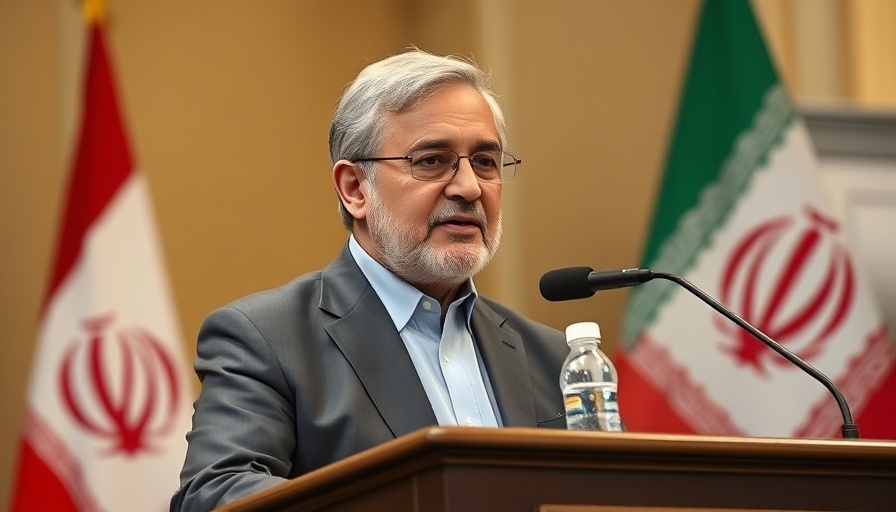
Understanding Iran's Nuclear Ambitions: A Complex Landscape
As the global community watches, the stakes of the nuclear discussions with Iran have soared to unprecedented heights. The latest moves from Tehran, including their explicit statement of intentions regarding uranium enrichment, starkly highlight a regime that appears uninterested in negotiating a nuclear deal. This defiance raises significant concerns about regional stability and global peace.
Iran's Actions Speak Louder Than Negotiations
While the Trump administration has made attempts at diplomacy, the recent announcement that Iran would reject U.S. offers serves as a reminder that their leadership seems committed to its nuclear ambitions. Reports suggest that Iran's production of 60%-enriched uranium has dramatically increased, raising fears that the country could assemble nuclear weapons far quicker than anticipated. In just a few weeks, officials have noted a jump in enriched uranium from 274 kilograms to 408 kilograms. Does this signal a mere stalling tactic, or a firm commitment to becoming a nuclear power?
Trusting Iran: A Risky Proposition
The notion of trusting Iran to adhere to low-level uranium enrichment for peaceful purposes has been met with skepticism from various political factions. The history of nuclear negotiations around the world reveals that nations often find it challenging to abide by deals they perceive as non-enforceable. Iranian officials have indicated time and again that they view nuclear capability as essential to their sovereignty—a fact that undermines the foundations of any negotiation.
The Regional Implications of Iran Going Nuclear
Iran’s ascent to nuclear capability could have catastrophic repercussions for Middle Eastern geopolitics. Neighboring states may feel compelled to enhance their own military capabilities, potentially igniting a regional arms race. Moreover, the idea of a nuclear-armed Iran creates a lasting fear among nations such as Israel and Saudi Arabia, who might scramble to develop their respective deterrents. Therefore, the stakes extend beyond Iran and resonate throughout the region, necessitating a reevaluation of diplomatic strategies.
A Call to Action: What the U.S. Must Do
In light of these developments, it is imperative for U.S. policy makers to stop yielding any ground in negotiations with Iran. The time has come for a more robust and assertive stance. President Trump has made it clear that unacceptable options exist, and perhaps it is time to consider more severe consequences for Iran's continued belligerence. Should a swift conclusion to these talks not occur, we may find ourselves facing the very scenarios we have worked tirelessly to prevent.
Conclusion: The Path Forward
In conclusion, the complexities surrounding Iran’s nuclear ambitions demand a serious reevaluation of approaches taken by the U.S. and its allies. The evidence suggests that Iran is not only unwilling to compromise but is racing toward a nuclear future with alarming speed. It is critical for governments worldwide to unite against this trend in order to safeguard global security. Engagement can only bear fruit with a partner willing to negotiate in good faith.
If you are concerned about the current trajectory of U.S. and Iranian relations, stay informed about the latest developments through trusted news sources and engage in discussions about how we can collectively address this issue effectively.
 Add Element
Add Element  Add Row
Add Row 



 Add Row
Add Row  Add
Add 


Write A Comment